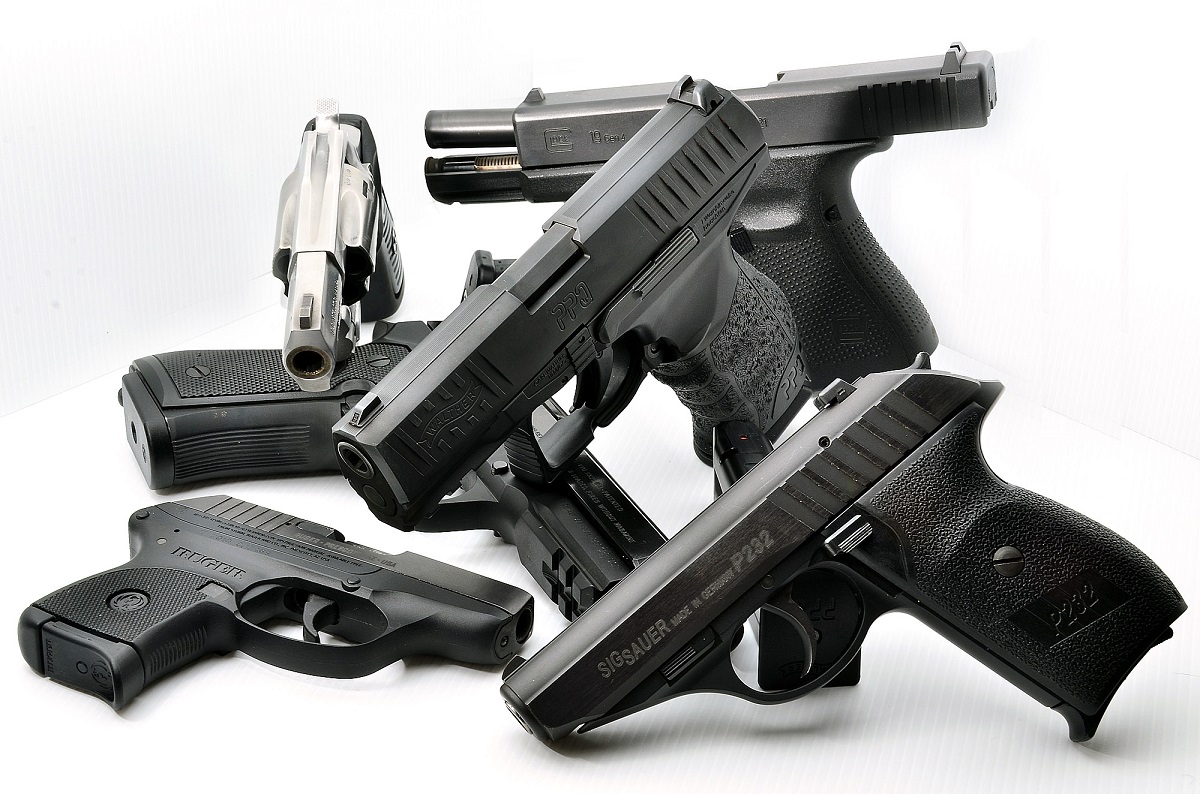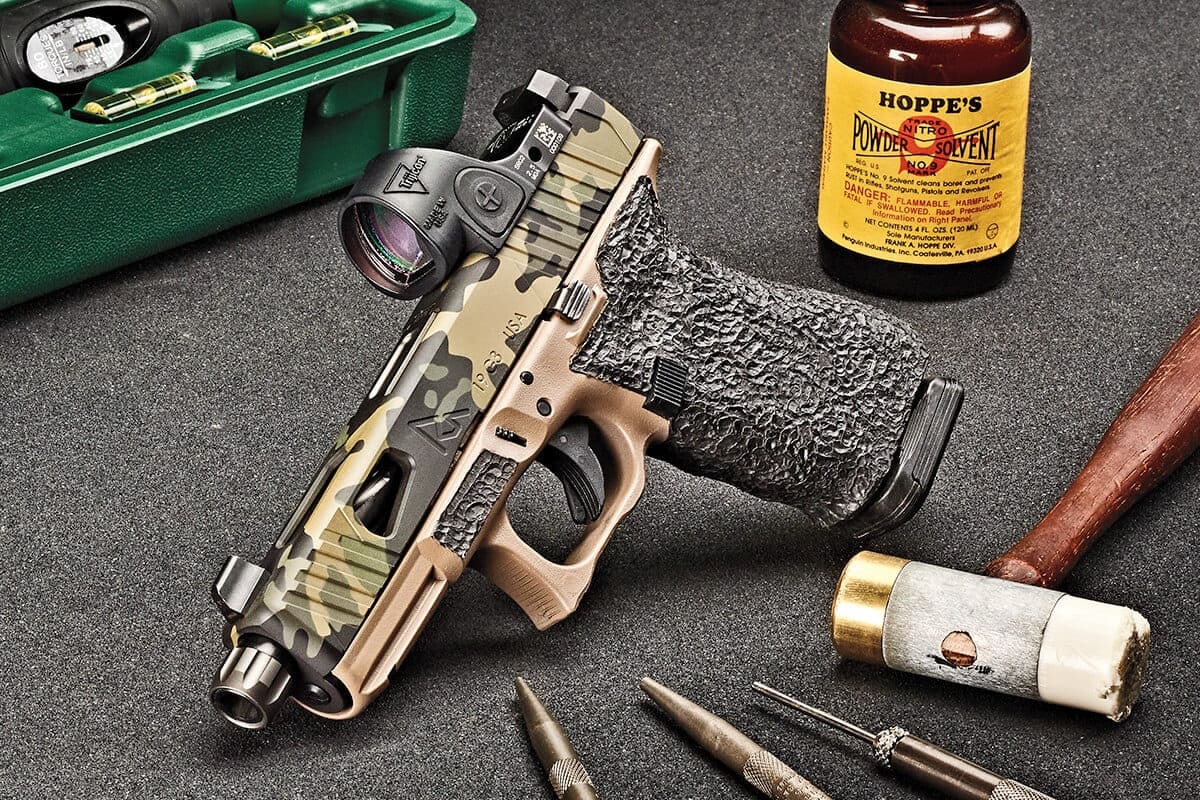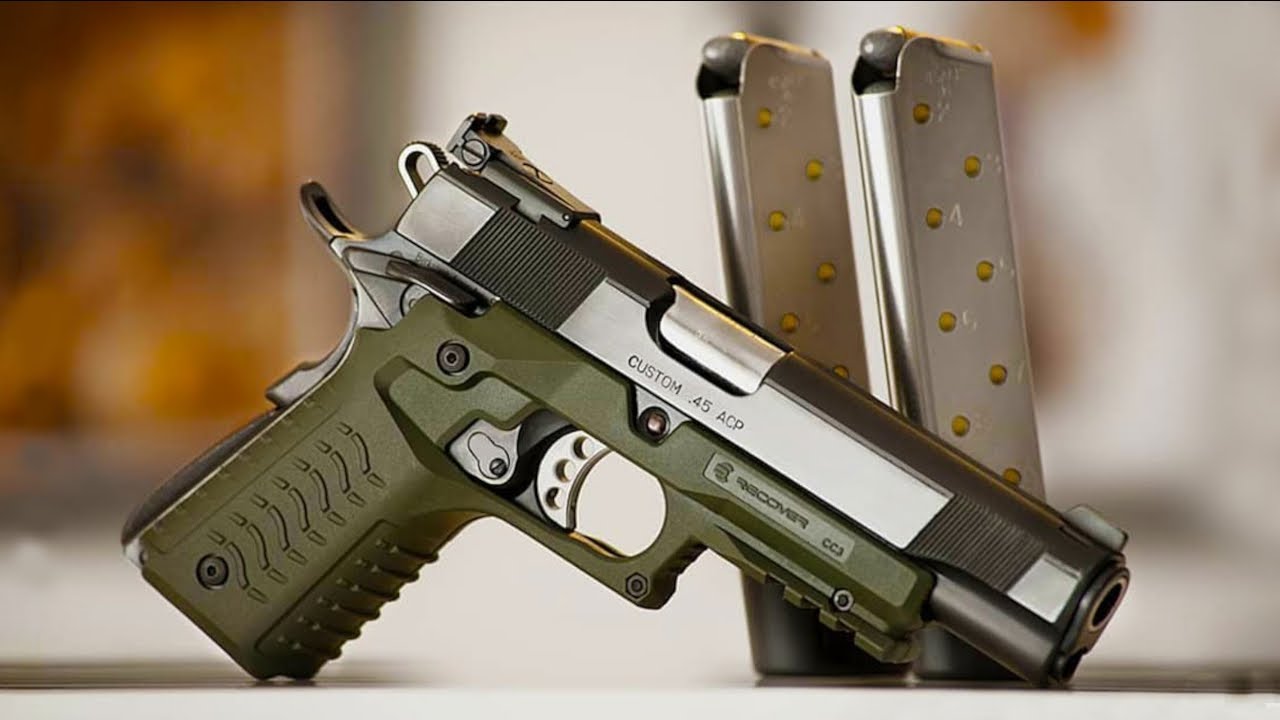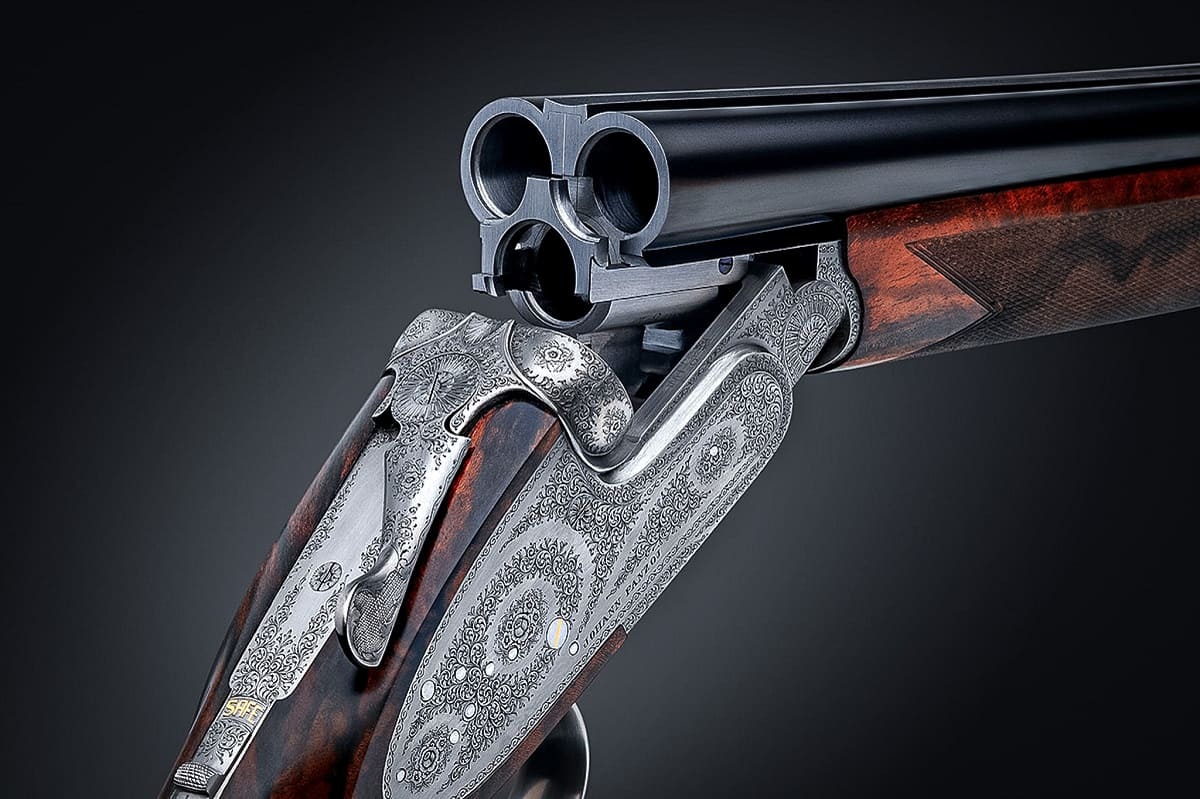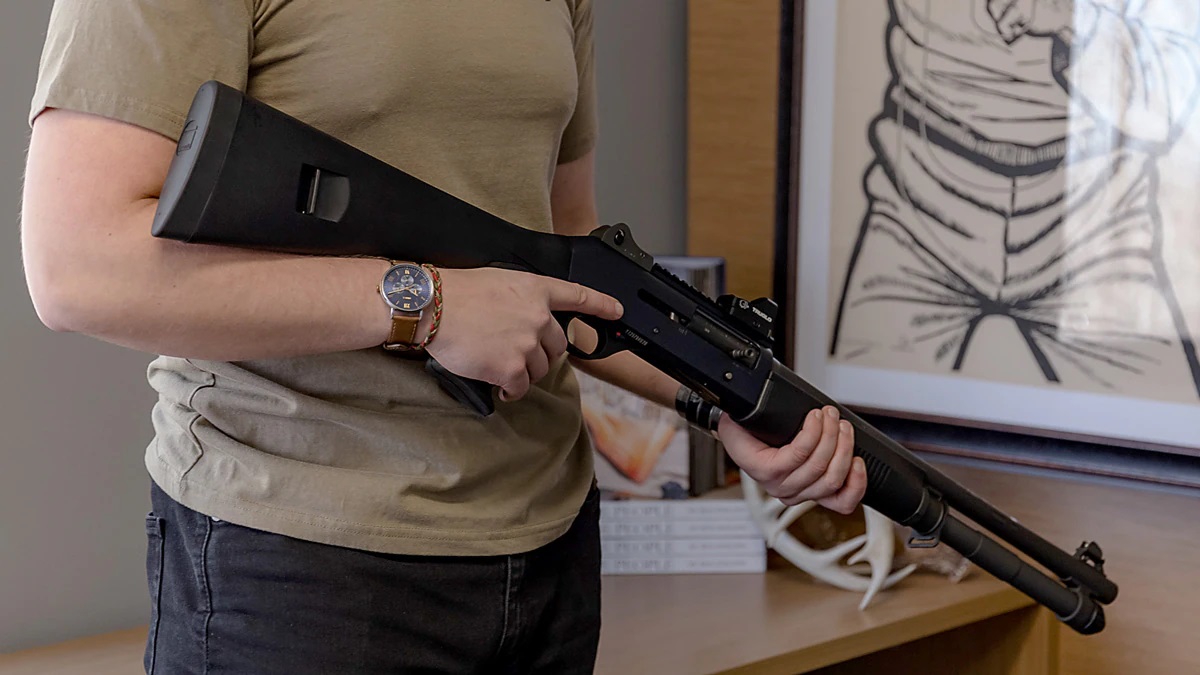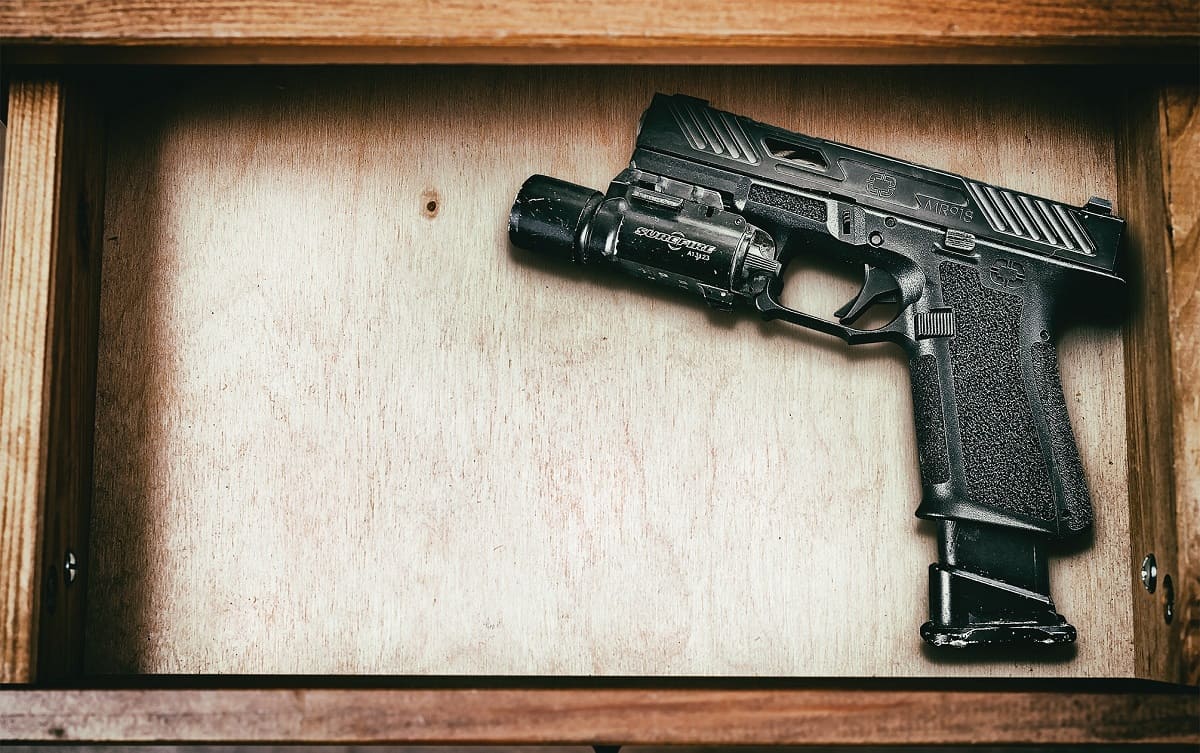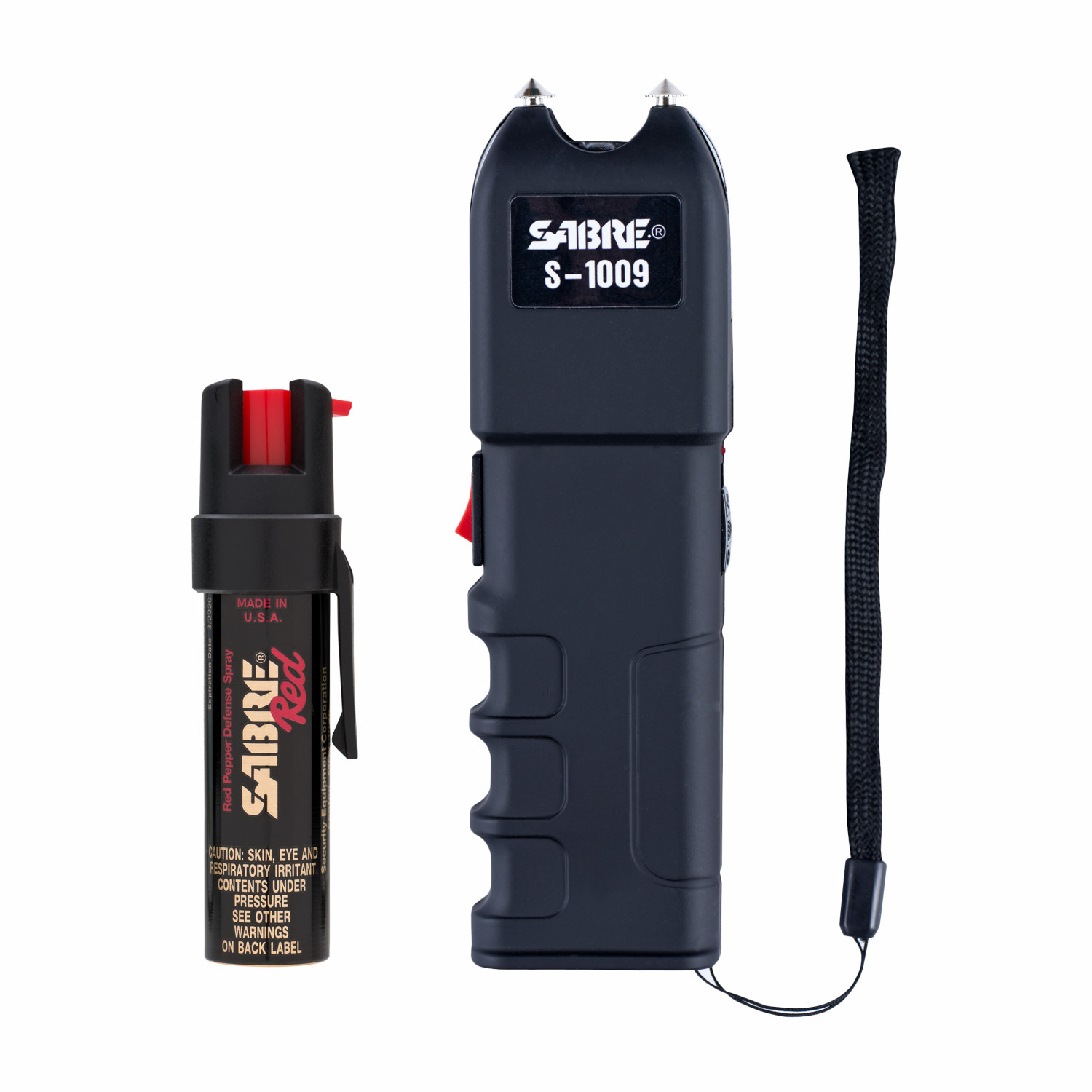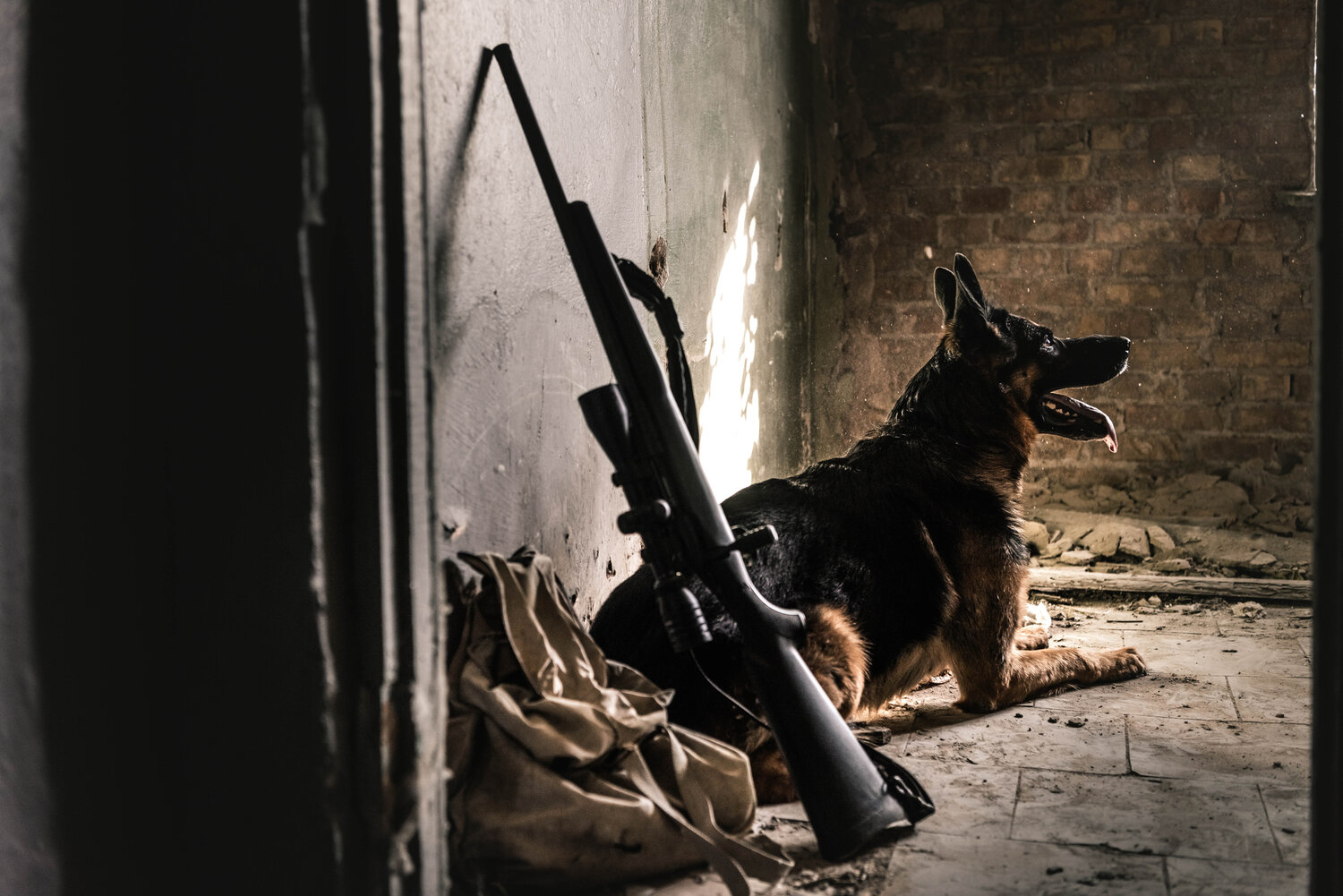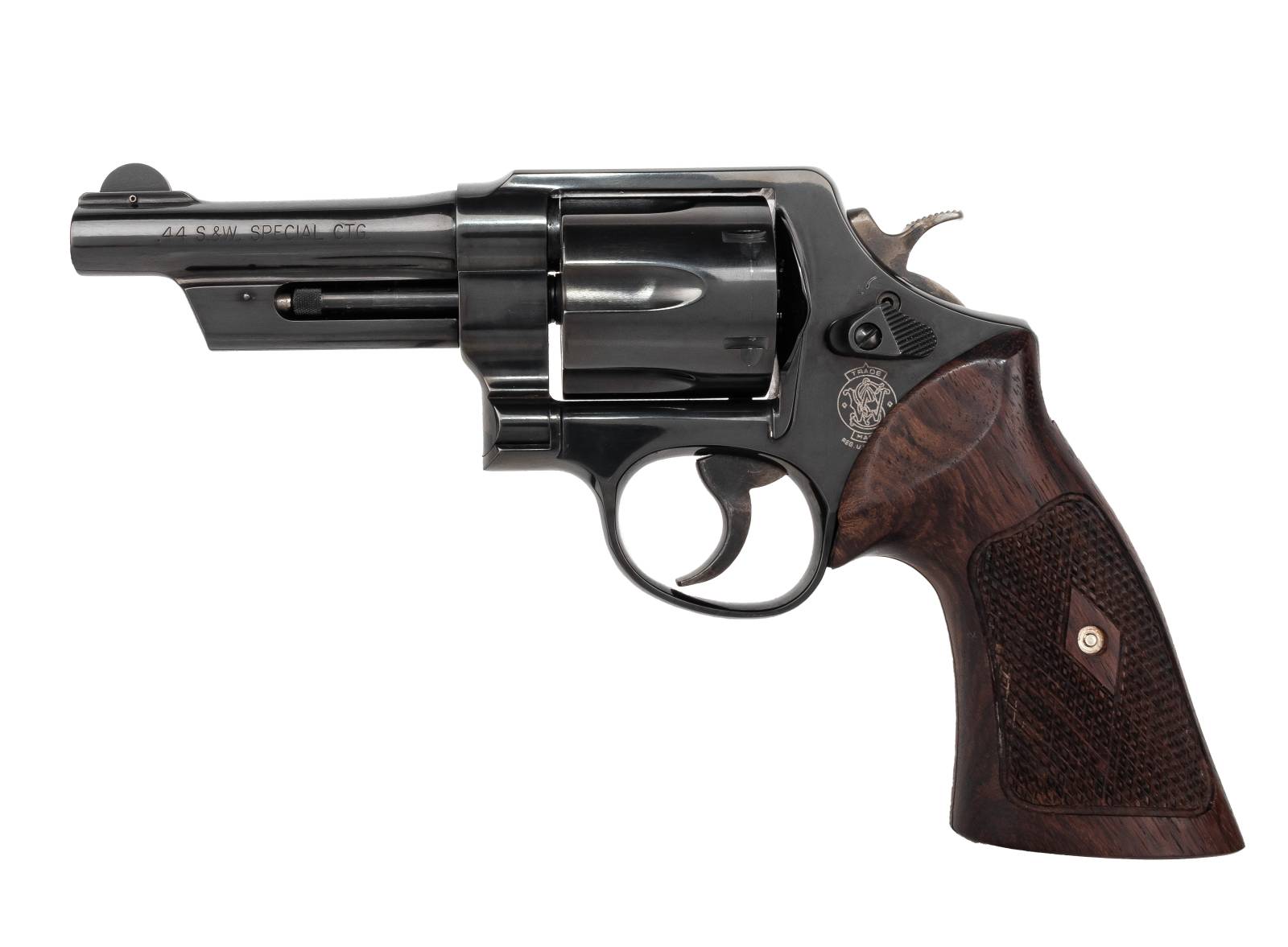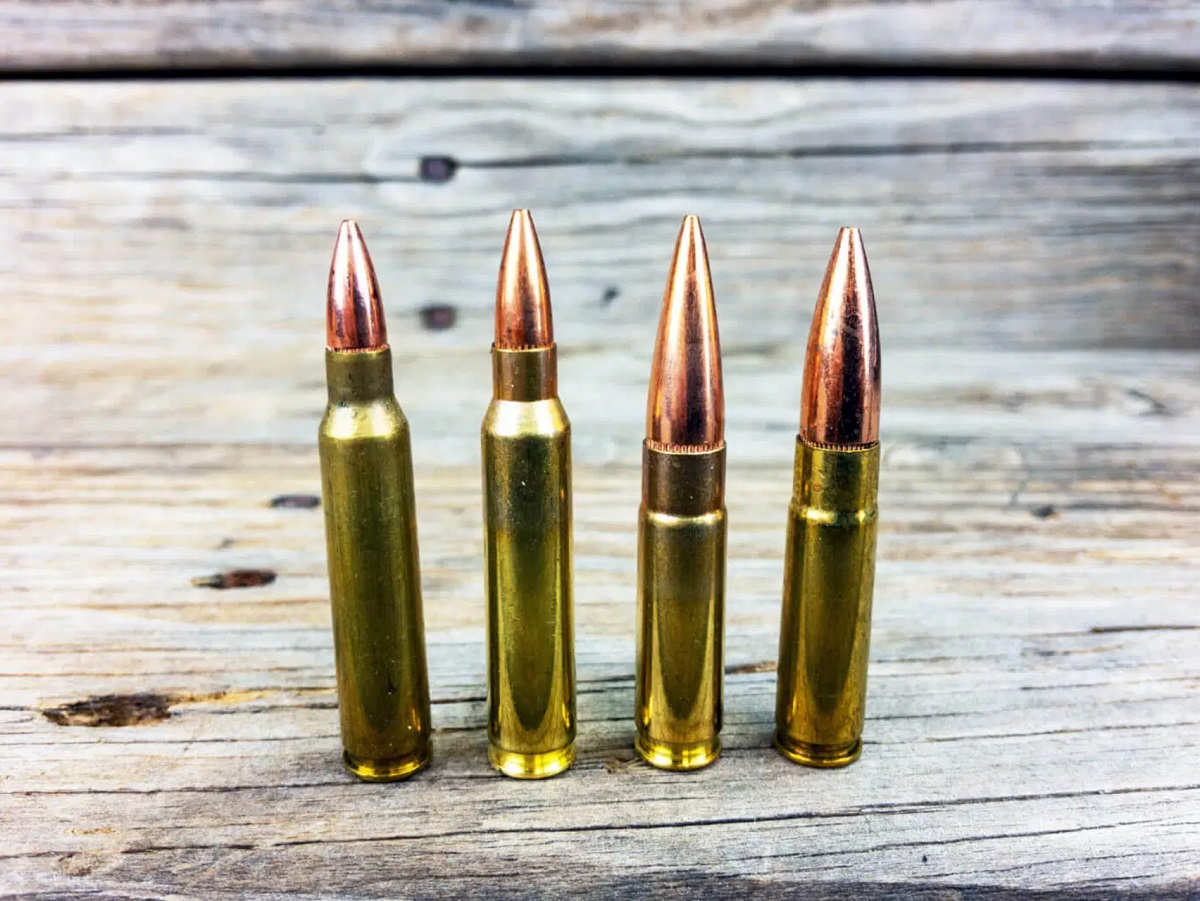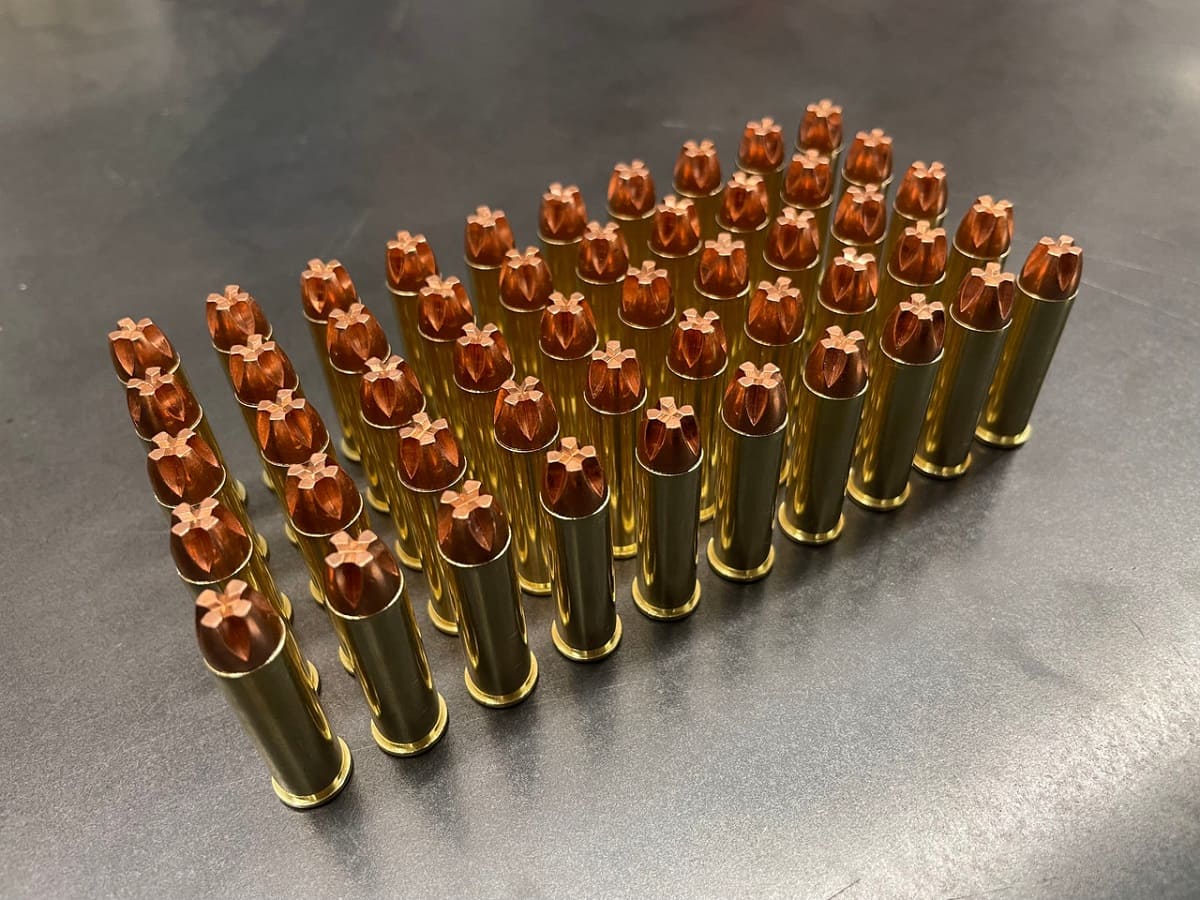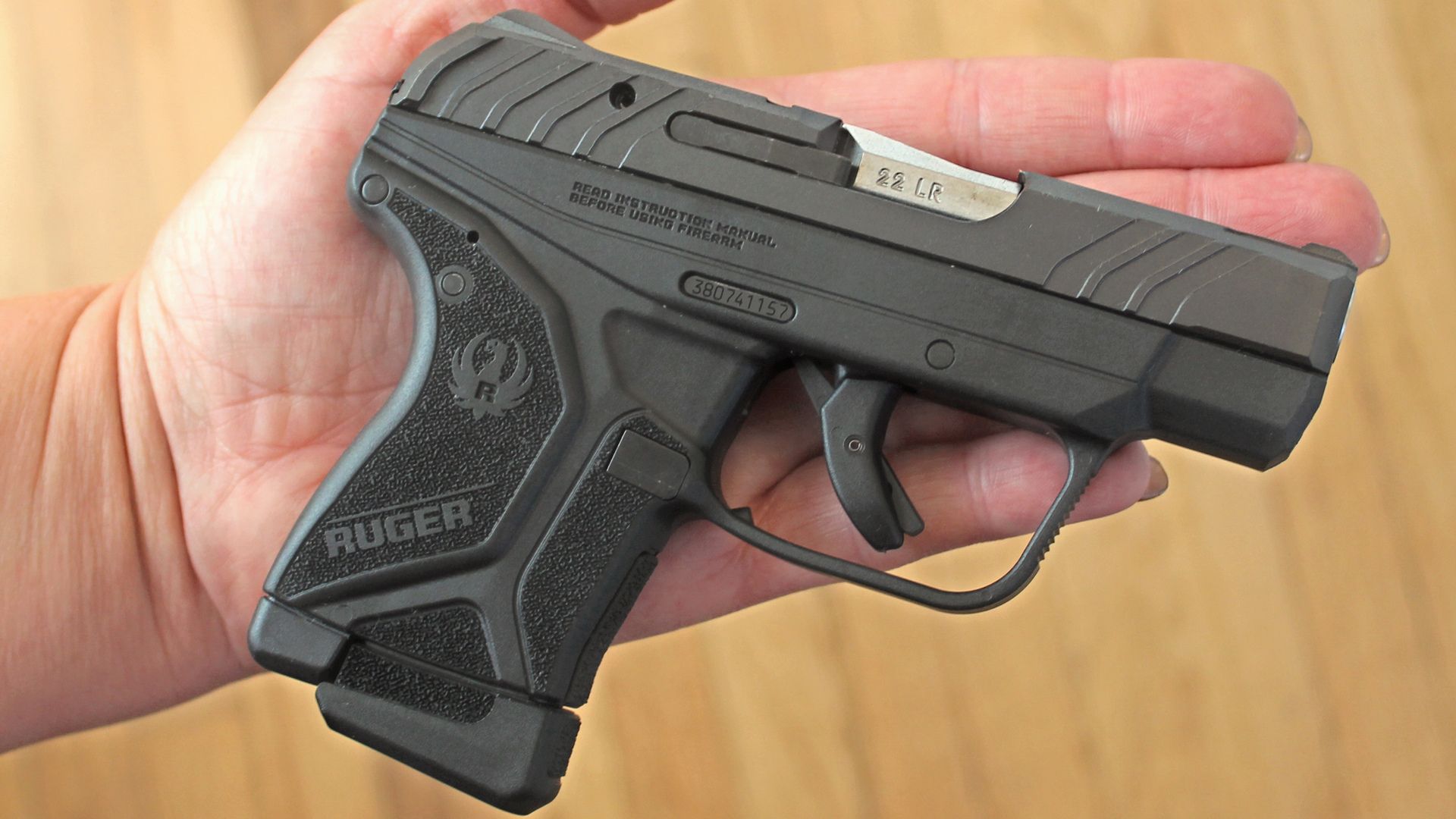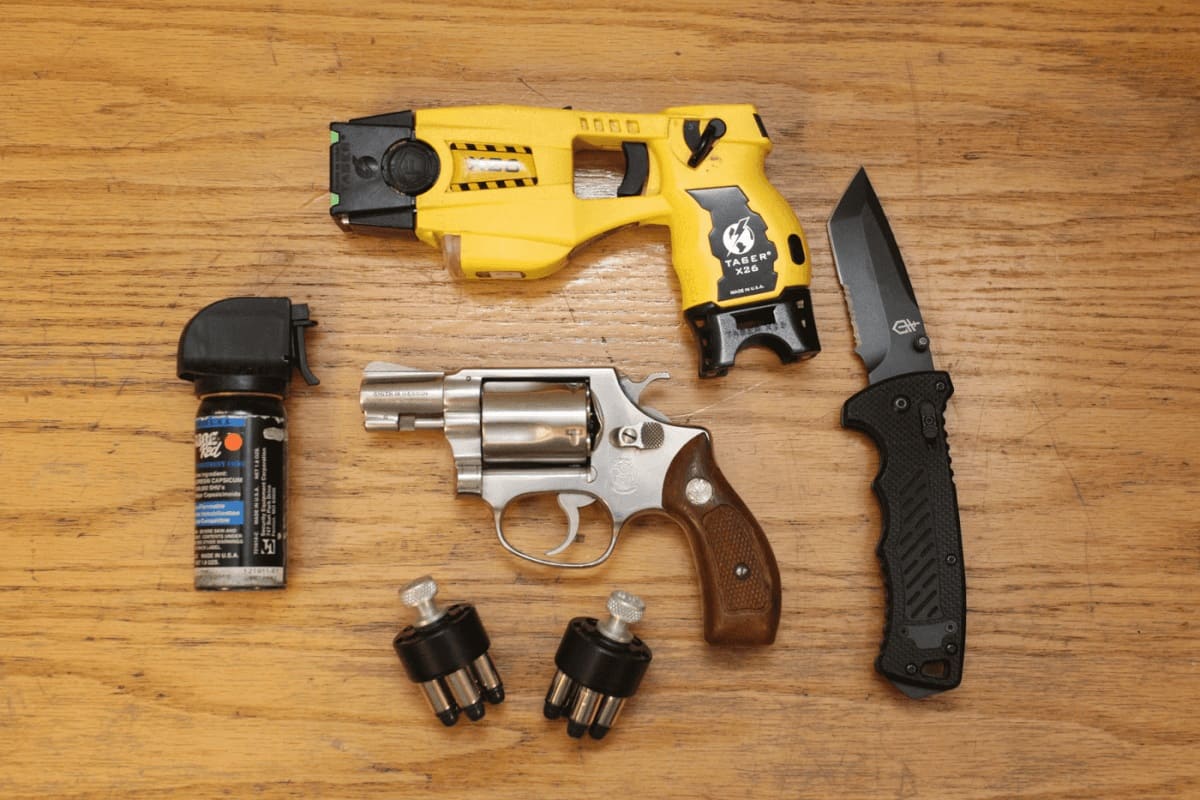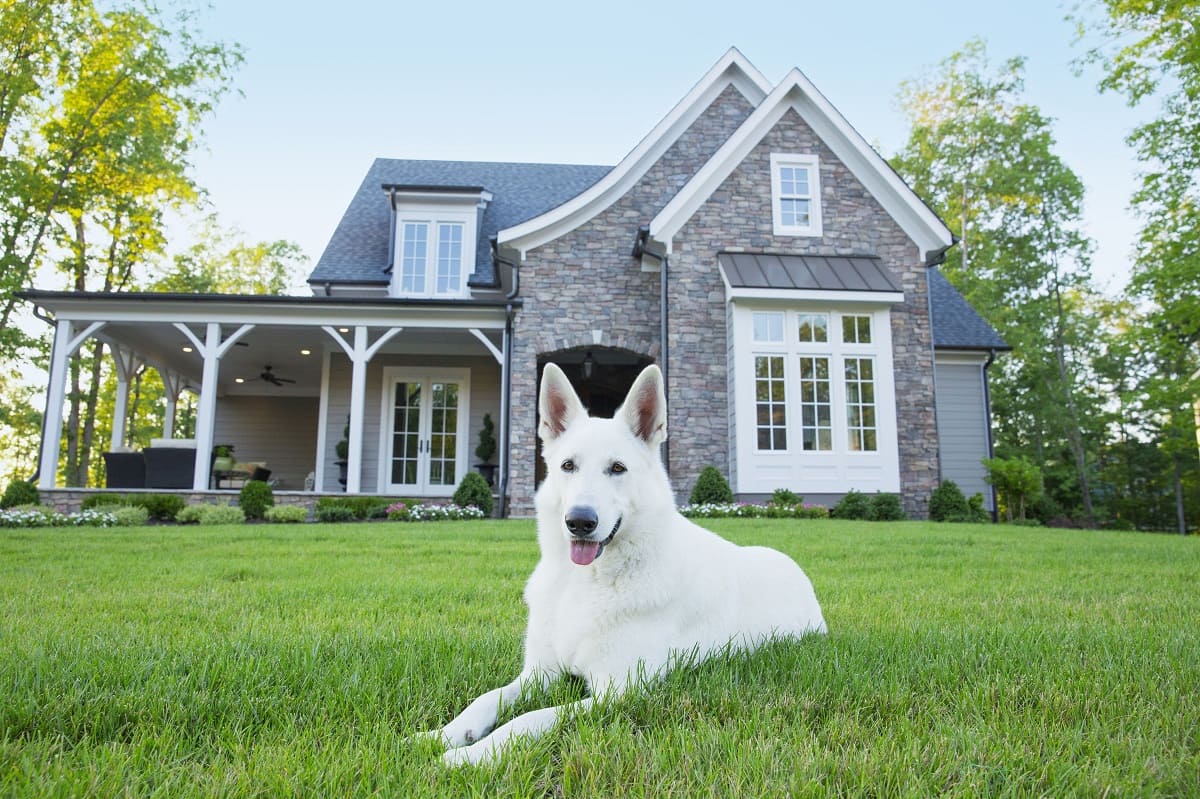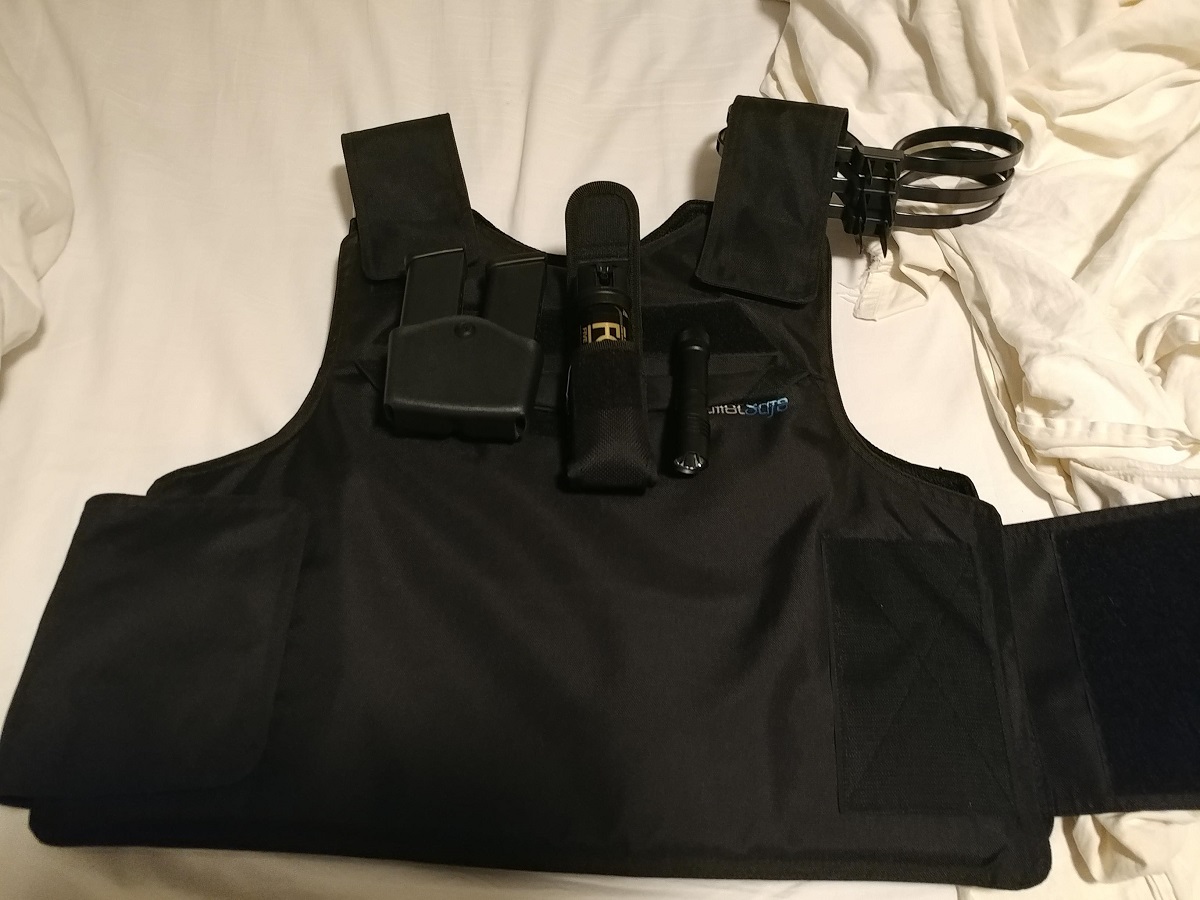Home>Home Security and Surveillance>What Is Better: Pistol Or Revolver For Home Defense
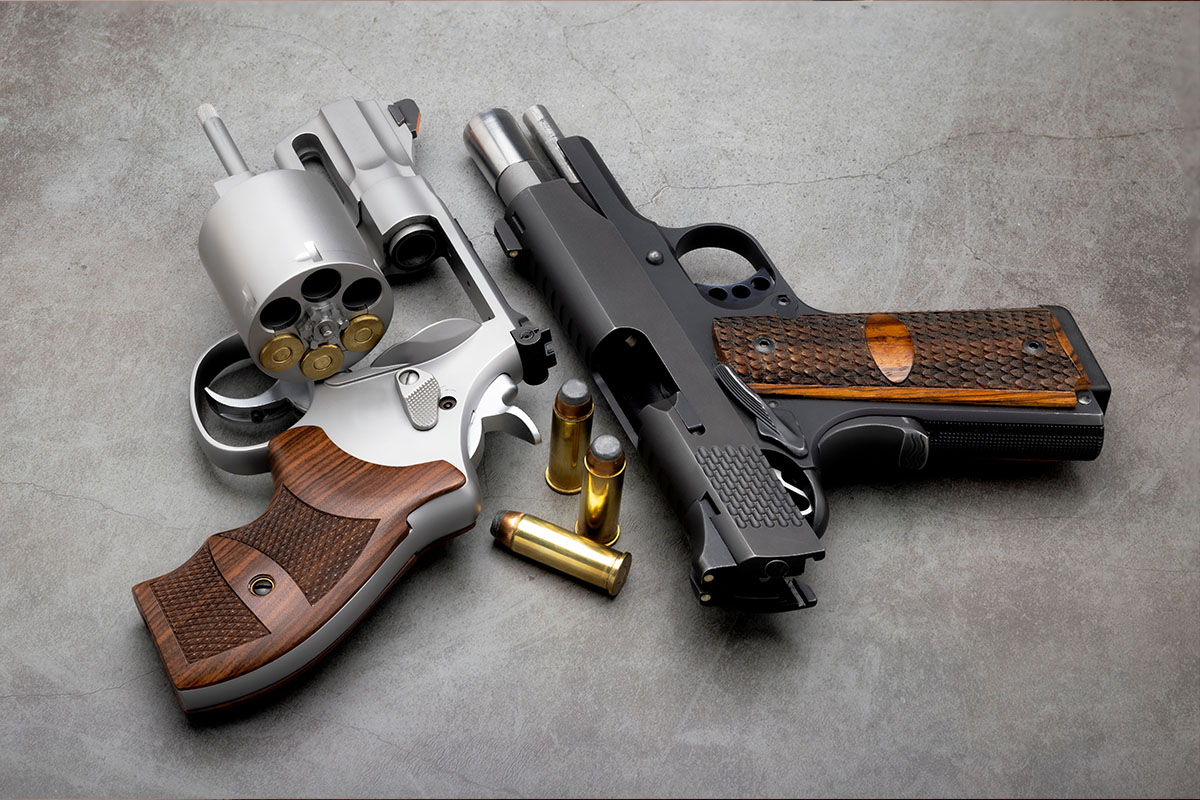

Home Security and Surveillance
What Is Better: Pistol Or Revolver For Home Defense
Modified: March 6, 2024
"Discover the best choice for home defense: pistol or revolver. Enhance your home security and surveillance with our comprehensive guide."
(Many of the links in this article redirect to a specific reviewed product. Your purchase of these products through affiliate links helps to generate commission for Storables.com, at no extra cost. Learn more)
Introduction
When it comes to home security and personal safety, choosing the right firearm can be a crucial decision. Two popular options for home defense are pistols and revolvers. While both have their merits, understanding their pros and cons can help you make an informed choice.
In this article, we will delve into the advantages and disadvantages of both pistols and revolvers for home defense. By examining the factors to consider when selecting a firearm, you will be better equipped to make the best decision for your specific needs.
It’s important to note that personal preference and comfort level play significant roles in choosing the right firearm. Therefore, it is essential to handle and test various models to find the best fit for you. Additionally, firearm laws and regulations vary by location, so always ensure that you comply with local laws and acquire the necessary permits and training.
Now, let’s explore the pros and cons of pistols and revolvers for home defense, helping you determine which option may be better suited to your needs and circumstances.
Key Takeaways:
- When choosing a firearm for home defense, consider pistols for higher capacity and maneuverability, but be prepared to manage recoil and potential malfunctions with regular training and practice.
- Revolvers offer simplicity and reliability for home defense, with their classic appeal and stopping power, but be mindful of their limited capacity and slower reload times. Familiarize yourself with your chosen firearm through proper training and regular practice.
Pros and Cons of Pistols for Home Defense
Pistols are one of the most popular choices for home defense due to their versatility, capacity, and ease of use. Here are some pros and cons of using pistols:
Pros:
- Capacity and ammunition: Pistols generally have a higher ammunition capacity compared to revolvers, typically holding anywhere from 10 to 20+ rounds. This allows for more rounds to be fired before needing to reload, which can be advantageous in a home defense scenario.
- Compactness and maneuverability: Pistols are generally more compact and lightweight compared to revolvers, making them easier to handle and maneuver in tight spaces like hallways or corners. This can be beneficial for home defense situations where mobility is crucial.
- Semi-automatic functionality: Pistols are semi-automatic, meaning they automatically load a new round into the chamber after each shot. This allows for faster follow-up shots compared to a revolver, giving you a higher rate of fire.
- Wide range of options: Pistols are available in various calibers, sizes, and configurations, providing a wide range of options to suit individual preferences and needs. This allows you to choose a pistol that fits comfortably in your hand and offers the right balance of stopping power and recoil control.
Cons:
- Recoil: Depending on the caliber and size, pistols can have more recoil compared to revolvers. This can impact accuracy, especially for those with limited shooting experience. However, with proper training and practice, recoil control can be managed effectively.
- Reloading: While pistols generally have higher ammunition capacity, they require manual reloading once the magazine is empty. Reloading under stress can be challenging, and it’s crucial to train and practice reloads to minimize the time it takes to bring the pistol back into action.
- Potential for malfunctions: Pistols, being semi-automatic, rely on the proper functioning of the magazine, slide, and other moving parts. While modern pistols are designed to be reliable, there is a slight potential for malfunctions such as failure to feed or failure to eject. Regular cleaning, proper maintenance, and using quality ammunition can help mitigate the risk of malfunctions.
Considering these pros and cons, pistols offer a reliable and versatile option for home defense, providing a balance between capacity, maneuverability, and ease of use. However, it is essential to train regularly to become proficient in handling and operating a pistol, ensuring you can effectively mitigate any potential drawbacks.
Pros and Cons of Revolvers for Home Defense
Revolvers have been a trusted choice for home defense for many years. While they may not have the same capacity as pistols, revolvers offer their own unique advantages. Here are some pros and cons of using revolvers:
Pros:
- Simplicity and reliability: Revolvers have a simplified design with fewer moving parts compared to pistols. This makes them extremely reliable and less prone to malfunctions. In a high-stress situation, where reliability is crucial, a revolver can provide peace of mind.
- Easy to operate: Revolvers are known for their user-friendly operation. With no external safety features to manipulate, revolvers offer a simple point-and-shoot design. This can be advantageous for individuals with minimal firearms training or those who prioritize ease of use.
- Power and stopping potential: Revolvers are available in larger calibers, which can deliver significant stopping power. The larger bullet size and slower velocities of revolver rounds can lead to increased terminal ballistics, making them effective for self-defense scenarios.
- Intimidation factor: The sight of a revolver can be intimidating to potential intruders. The sound of a cylinder rotating and the classic appearance of a revolver can act as a deterrent, potentially discouraging a confrontation in the first place.
Cons:
- Capacity: One of the main drawbacks of revolvers is their limited ammunition capacity. Most revolvers hold only 5 to 8 rounds, depending on the model. This means fewer rounds before needing to reload, which can be a disadvantage in an extended or multiple threat situation.
- Reloading: Reloading a revolver is a slower process compared to a pistol. Each round must be manually loaded into the cylinder, which requires more time and dexterity. Reloads under stress can be challenging, and it’s vital to practice reloading techniques to minimize the time it takes to get back into action.
- Recoil and follow-up shots: Revolvers, especially in larger calibers, tend to have more recoil compared to pistols. This can affect accuracy and make it more challenging to quickly get back on target for follow-up shots. Regular training and practice are necessary to manage recoil effectively.
Considering these pros and cons, revolvers offer a reliable and straightforward option for home defense, with their simplicity, reliability, and stopping power. While they may have limited capacity and slower reload times, a well-trained individual can effectively use a revolver for self-defense. Ultimately, the choice between a pistol and a revolver for home defense comes down to personal preference, comfort, and individual circumstances.
Consider the trade-offs: pistols offer more rounds and faster reloading, while revolvers are simpler to operate and less likely to jam. Choose based on your comfort and proficiency with the weapon.
Factors to Consider When Choosing Between a Pistol and Revolver
Choosing the right firearm for home defense requires careful consideration of several factors. Here are some key factors to keep in mind when deciding between a pistol and a revolver:
- Experience and training: Your level of experience and training with firearms should play a significant role in your decision-making process. If you are new to firearms or have limited training, a revolver’s simplicity and ease of use may be more suitable. On the other hand, if you are an experienced shooter, the versatility and capacity of a pistol may be more appealing.
- Comfort and ergonomics: How a firearm feels in your hand is crucial for accuracy and overall performance. Take the time to handle and test various pistol and revolver models to see which one fits comfortably and offers optimal ergonomics for your hand size and grip style.
- Ammunition capacity: Consider how important ammunition capacity is to you. Pistols generally have higher capacity magazines, allowing for more rounds before needing to reload. However, revolvers can still be effective with their limited capacity, especially if shot placement and accuracy are prioritized.
- Recoil management: Recoil can impact accuracy and follow-up shots. Consider your ability to manage recoil, especially if you have any physical limitations or are sensitive to recoil. While pistols may have more recoil, they also offer options for recoil mitigation through different calibers and recoil spring systems.
- Reloading speed and technique: Assess your ability to efficiently perform reloads under stress. Revolvers typically require manual reloading of each individual round, which takes more time compared to semi-automatic pistols. If a quick reload is crucial to you, a pistol may be a better choice.
- Home layout and environment: Evaluate your home’s layout and consider how a firearm’s size and maneuverability will fit in your specific environment. If you have tight spaces or narrow hallways, a compact and maneuverable pistol may be more advantageous. However, if you have a larger property or open spaces, a revolver’s effectiveness may not be hindered by size or maneuverability constraints.
Ultimately, the decision between a pistol and a revolver for home defense should be based on your personal preferences, comfort level, and intended use. It is crucial to handle and test-fire different models to determine which firearm best suits your needs. Don’t be afraid to seek guidance from firearms professionals or trainers who can provide valuable insights and help you make an informed decision.
Conclusion
Choosing the right firearm for home defense is a decision that should not be taken lightly. Whether you opt for a pistol or a revolver, both options have their own set of advantages and considerations to keep in mind.
Pistols offer higher ammunition capacity, greater maneuverability, and a wide range of options to cater to individual preferences. They excel in providing a balance between capacity, versatility, and ease of use. However, they may have more recoil, potential for malfunctions, and require manual reloading.
On the other hand, revolvers are known for their simplicity, reliability, and stopping power. They offer a straightforward operation, ease of use, and a classic appeal. While they may have limited capacity and slower reload times, revolvers can still be effective for home defense when deployed by a well-trained individual.
When making your decision, consider factors such as your experience level, comfort and ergonomics, ammunition capacity, recoil management, reloading speed, and the layout of your home. Additionally, ensure you comply with local laws and regulations regarding firearm ownership and use.
Ultimately, the best firearm for home defense is the one that you feel most comfortable and confident using. Familiarize yourself with your chosen firearm through proper training and regular practice to develop the necessary skills for home defense scenarios.
Remember, a reliable firearm is just one aspect of home security. Consider other layers of home protection, such as secure entry points, alarm systems, and personal safety plans, to create a comprehensive home security strategy.
By carefully considering the pros and cons of pistols and revolvers, evaluating your specific needs and circumstances, and seeking guidance from knowledgeable professionals, you can make an informed decision that enhances your home security and personal safety.
Frequently Asked Questions about What Is Better: Pistol Or Revolver For Home Defense
Was this page helpful?
At Storables.com, we guarantee accurate and reliable information. Our content, validated by Expert Board Contributors, is crafted following stringent Editorial Policies. We're committed to providing you with well-researched, expert-backed insights for all your informational needs.
